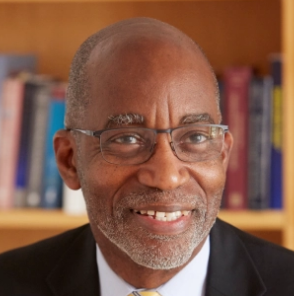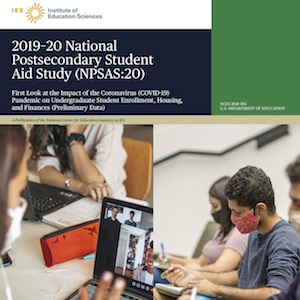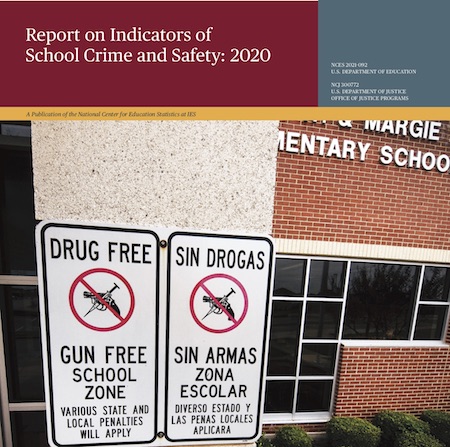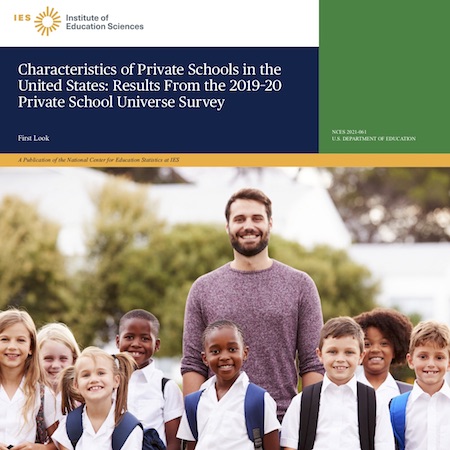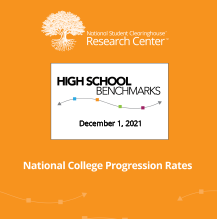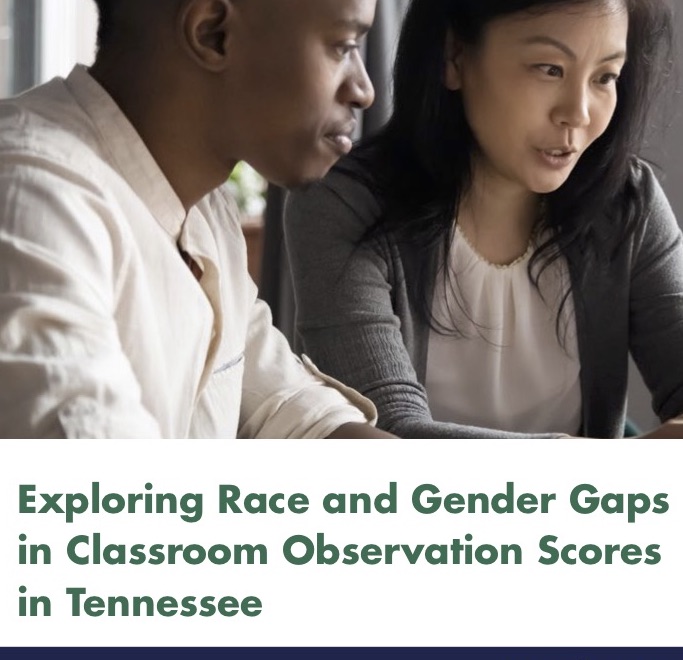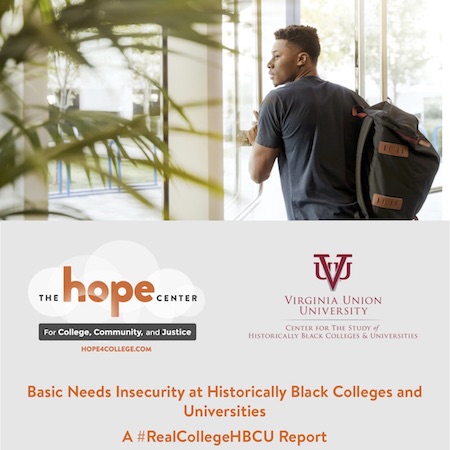Higher Education Leads to Better Health, But Not So Much for Black Men
Studies show life expectancy is higher for educated Black men — those with a college degree or higher — compared with those who have not finished high school. But the increase is not as big as it is for Whites. The findings suggest that the power of discrimination to harm Black men’s lives may be more persistent than previously understood.
How African American Undergraduate Students Were Impacted by the COVID-19 Pandemic
A new report from the U.S. Department of Education finds that some 7.2 percent of Black undergraduates said they withdrew from their college or university during the first few months of the pandemic, more than double the rate for Whites. Another 5.6 percent of all Black undergraduates took a leave of absence, almost double the rate for Whites.
A Supreme Court Ban on Affirmative Action Would Halt Progress on Achieving a More...
A new study by Joni Hersch, the Cornelius Vanderbilt Professor of Law and Economics at Vanderbilt University in Nashville, shows the devasting effects that would occur, should the Supreme Court ban the consideration of race in admissions decisions at the nation's most elite universities and professional schools.
Study Shows How COVID-19 Widened the Racial Gap in Life Expectancy in the United...
The study found that the gap in life expectancy between Black and White populations decreased from 4.02 years in 2010 to 3.54 years in 2014. But the gap increased to 5.81 years in 2020. In 2020, life expectancy for Black men was only 67.73 years, the lowest level since 1998.
Report Documents the Employment Shortfall of African Americans in the Tech Workforce
A new report from the Computing Technology Industry Association offers a wealth of data on employment in the technology sector. In the San Jose, California, metropolitan area, home to Silicon Valley, there are just over 3,000 African Americans employed in tech positions. In contrast, there are 45,000 White workers and more than 107,000 Asian American workers.
The Far-Reaching Racial Disparities as a Result of the COVID-19 Pandemic
While overall deaths relating to motor vehicle crashes increased by 7.2 percent in 2020, African American deaths increased by 23 percent. The fact that Blacks were less likely to be able to work at home during the pandemic was a contributing factor.
New Report Examines Residential Racial Segregation in the Twenty-First Century
A new report by researchers at the University of California, Berkeley's Othering and Belonging Institute finds that residential racial segregation is the major factor in racial inequality in the United States. The authors also conclude that residential segregation not only persists but has gotten worse over the past 30 years.
New Study Finds That Property Tax Rates Unfairly Burden Black Homeowners
A new study by Christopher Berry, the William J. and Alicia Townsend Friedman Professor at the Harris School of Public Policy at the University of Chicago, finds that properties located in neighborhoods that are 90 to 100 percent Black experience assessment levels that are more than 1.5 times the average for their county.
Hate Crimes Continue to Plague College and University Campuses
In 2018, of the more than 34,000 criminal incidents that occurred on the campuses of postsecondary institutions and were reported to police or security agencies, 814 incidents were classified as hate crimes. Race was the motivating bias in 43 percent of reported hate crimes.
Study Finds Black Access to Healthcare Lags in States That Show a High Level...
The results showed that the higher the level of racism in a given state, the less access Black people in that state had to health care. The higher the level of racism in a given state, the more access White people had to health care. In addition, the worse the state’s racism score, the higher the quality of care White people reported receiving.
Black Heart Attack Victims Who Live In High-Poverty Areas Are Less Likely to Survive...
The study found that Black patients from disadvantaged neighborhoods were significantly more likely to die within 5 years of surviving a heart attack than White patients. In contrast, there was no difference in rates of death between White patients and Black patients who lived in well-resourced neighborhoods.
The Educational Challenges of Rural African American Families During the COVID-19 Shutdown
The researchers noted that "many parents (a) lacked the technical expertise with the technologies their children were using such as Zoom and in the material children were learning and (b) had no access to training and support from professionals. Some parents lacked dependable broadband/Wi-Fi.
Will Urban Gentrification Lead to More Integrated Public Schools?
A new study from the National Center for the Study of Privatization in Education at Teachers College of Columbia University, found that some schools in the New York City boroughs of Brooklyn and Queens have seen a reduction in racial segregation while neighborhoods have experienced increased diversity since the early 2000s.
Study Finds Black Girls Are Treated With Indifference and Cruelty in Urban Classrooms
In the elementary and middle schools of a large metropolitan school district that were studied, Black and immigrant girls of color experienced gendered racial harassment, erasure of intellect, and estrangement within their communities. This included the verbal abuse of Black and immigrant girls of color by mostly White teachers.
2020 Census Data on Race and Ethnicity of the Population of the United States
The Some Other Race alone or in combination group (49.9 million) increased 129 percent, surpassing the Black or African American population (46.9 million) as the second-largest race alone or in combination group.
The FBI Releases New Data on Hate Crimes in the United States
There were 224 hate crimes in elementary or secondary schools that were reported to the FBI in 2020. There were only 116 reported hate crimes on college campuses. But remember that a large majority of college campuses were shut down for a good portion of the year due to the pandemic.
Emory University Study Finds Racial Disparities in Heart Condition Among College Football Players
The study found no racial differences in concentric left ventricular hypertrophy among college football athletes that played on the offensive or defensive lines. But for skilled position players - quarterbacks, receivers, and running backs - a higher percentage of Black collegiate football players were more likely to develop concentric left ventricular hypertrophy than White football players.
Adding Ethnic Studies to High School Curricula Improves Performance and Graduation Rates
In one California school district, ninth graders with a grade-point average of 2.0 or under were automatically enrolled in an ethnic study course. The research showed that enrollment in ethnic studies substantially increased high school graduation, attendance, and the probability of enrolling in college.
New Study Find that Systemic Racism May Effect the Safety of the Food Supply...
A new study by researchers at the University of Houston found a significant disparity in the quality and safety of food available in low- versus high-income communities. The results may explain - at least in part - the high levels of gastrointestinal illness in predominantly Black urban neighborhoods.
Yale University Study Finds Racial Bias in Emergency Room Procedures
A new paper by researchers at Yale University finds racial disparities in the use of physical restraints on children who are admitted to the hospital emergency department. Black children are significantly more likely than White children to be subdued with restraints during visits to emergency rooms.
A Snapshot of African American Enrollments in Private K-12 Schools in the United States
Of the more than 4.6 million students enrolled in private schools in the United States in 2019, 9.4 percent were Black or African American. Blacks made up a greater percentage of students in smaller private schools and in private schools in urban areas.
Study Finds Differences in Perception of Mental Health Providers’ Cultural Competence
A new study by researchers at Yale University, the Memorial Sloan Kettering Cancer Center in New York, and Vanderbilt University finds that patients who identify as racial and ethnic minorities prefer medical providers who share and understand their culture, but those patients are not as likely as others to access providers who can provide such care.
Black Students’ Scores on the ACT Test Continue to Fall and the Racial Gap...
In a year when many test dates were postponed or canceled due to the global pandemic and when many colleges and universities made standardized test scores optional, the persistent racial gap in scores on the ACT college entrance examination grew wider. Whites were more than five times as likely as Blacks to be prepared for college-level work in all four areas of English, math, science, and reading.
The Lingering Effects of the Federal Government’s Redlining of Black Neighborhoods
Beginning in the 1930s and 40s, the federal government delineated areas where mortgages could be insured. These redlining policies, which remained in effect until the 1960s, led to decades of community disinvestment, concentrated poverty in inner-city neighborhoods, and denied residents the ability to build intergenerational wealth through homeownership. Health impacts remain to this day.
A Hidden Tragedy of the COVID-19 Pandemic: Orphaned Black Children
From April 1, 2020 through June 30, 2021, data suggest that more than 140,000 children under age 18 in the United States lost a parent, custodial grandparent, or grandparent caregiver who provided the child’s home and basic needs. Black children were 2.4 times as likely as White children to lose a caregiver.
Study Finds Everyday Exposure to Police May Be Harmful to the Mental Health of...
“While there has been growing attention toward the deaths of Black Americans by police, less focus is being given to the everyday, routine encounters that Black youth have with police,” said lead author Monique Jindal.
New Reports Shows How HBCUs Are a Major Contributor to Social Mobility for African...
On average and across institution type, when it comes to mobility rates HBCUs outperform all other categories of educational institutions and are double the national rate. HBCUs are the primary postsecondary driver for moving Black Americans from poverty to the middle class.
Study Finds Teachers Offer Lower Quality Instruction to Predominantly Black Classes
A new study by researchers at New York University and the University of North Carolina at Chapel Hill finds find that classes taught by the same teacher receive a lower quality of teaching when they comprise higher percentages of Black and Latinx students.
Study Finds Americans Are Less Likely to Respond to Emails If the Sender is...
The researchers sent emails to a random list of 250,000 Americans. When the sender had a White-sounding name, they were 15 percent more likely to receive a response than emails where the sender had a Black-sounding name.
How the COVID-19 Pandemic Influenced College Enrollment Rates
A new report from the National Student Clearinghouse Research Center finds that college enrollment rates for 2020 high schools graduates have fallen significantly, especially for students from schools with a large percentage of students from low-income or underrepresented groups.
Higher Education Benefits Heart Health for All, But Less So for Blacks
A new study led by researchers at the University of Pittsburgh finds that individuals with a college degree were 4.12 times more likely to have an ideal cardiovascular health rating compared to those who did not have a high school degree. For Blacks, the benefit of higher education on heart health was far less.
The Long-Term Effects of Redlining on Public Health in Black Neighborhoods
A new study by researchers at the University of Maryland shows that people in areas long ago labeled as “red” (hazardous) or “yellow” (definitely declining) on infamous government housing maps in the 1930s, today have about a five-year shorter life expectancy than those living in areas that had been categorized as favorable for home mortgage lending.
Study Finds That Black Male Teachers May Face Bias From Classroom Evaluators
A new study finds that when comparing similarly credentialed teachers whose pupils achieved at about the same level, White and female teachers were rated higher than Black men. Poor evaluations may lead to lower job satisfaction, fewer promotions, and more Black men leaving the teaching profession.
Census Report Details Racial Differences in Family Makeup in the United States
Living arrangements can impact a child's education. Single parents may have less opportunity to read to their children, attend school functions, or offer help with homework. Single-parent families tend to have lower incomes and as a result, may be less able to afford educational resources.
A Snapshot of the Status of Black Teachers in the Nation’s K-12 Schools
New data from the U.S. Department of Education examines the background and school settings of Black or African American teachers in public and private schools in the United States before the coronavirus pandemic. During the 2017-18 school year, 7 percent of all teachers were Black or African American.
Survey Shows How Students at HBCUs Were Impacted by the COVID-19 Pandemic
The report from the Hope Center for College, Community, and Justice at Temple University in Philadelphia in conjunction with the Center for the Study of Historically Black Colleges and Universities at Virginia Union University, found that during the pandemic two-thirds of all HBCU students experienced basic needs insecurity.


